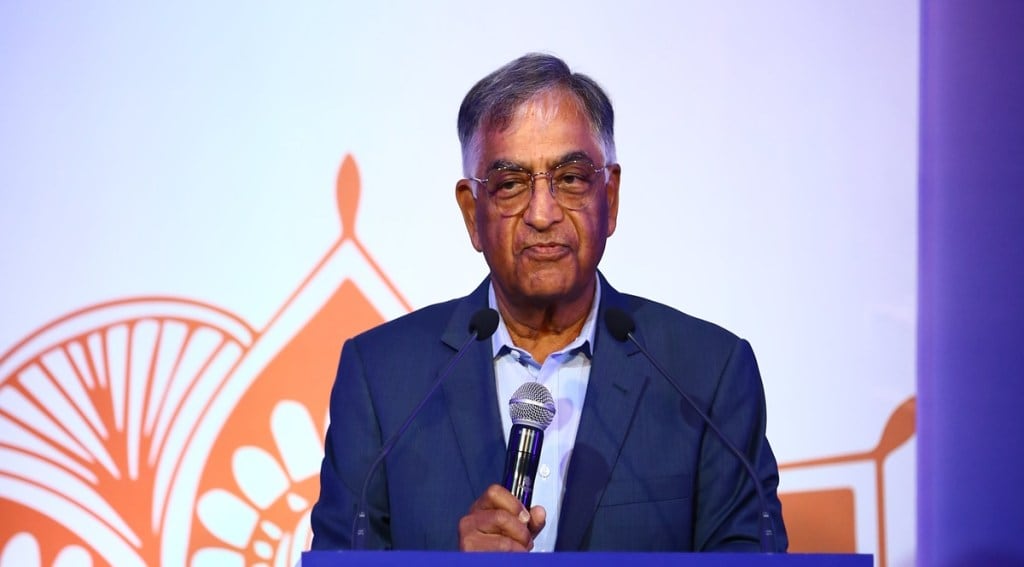Last week, America’s top medical university Johns Hopkins strengthened its ties with India by setting up the Gupta-Klinsky India Institute (GKII), an organisation that fosters multidisciplinary work between more than 165 faculty across seven university schools and Indian partners on high impact global efforts. Raj L Gupta, Co-Chair of Board of Advisors for the Johns Hopkins GKII, tells FE’s Vikram Chaudhary educational pathways for students who aspire to become R&D experts in healthcare and related areas. Excerpts:
What kind of challenges is the Johns Hopkins Gupta-Klinsky India Institute trying to address?
The aim is to promote multidisciplinary solutions to the world’s most vexing problems by expanding university partnerships in India and creating greater opportunities for India-related work. Without such efforts, resources devoted to important issues—control of preventable diseases such as tuberculosis or evidence-based policymaking around areas such as climate change—can be constrained in the bounds of traditional disciplines and often national borders. GKII aims to bridge those boundaries, concentrating on areas where Indian and Johns Hopkins experts can partner to make catalytic, scalable breakthroughs worldwide.
Is this initiative directly or indirectly linked to the Covid-19 pandemic, considering that research on infectious disease is one of your focus areas?
During the pandemic, the institute not only distributed $2.2 million to trusted partners in India that provided direct support on the ground, but also created a clearinghouse of findings of research in and outside of India to improve response, surveillance and control around the world.Infectious diseases is a traditional area of comparative excellence for Johns Hopkins and its counterparts in India, making it a promising area for GKII’s earliest efforts, but it is just the first of many promising areas for collaboration. India’s ambitious efforts around health systems strengthening and non-communicable diseases, for example, align well with Johns Hopkins’ pre-eminence in global health policymaking, maternal and child health, vaccine research, cancer, mental health, engineering, and climate change and environmental health, and leave room for integration of transformative disciplines such as big data analytics.
What is the profile of your researchers? What is the qualification to be part of this initiative? Can someone who wants to be part of the Gupta-Klinsky India initiative view it as a fulfilling career?
While many experts involved with the GKII are India specialists, almost all have performed at least some research in other countries. GKII researchers’ exposure to other countries is critical to translating discoveries and innovations in India into global breakthroughs. Remember, the GKII not only aims to work together with partners in India to create local impact, but will also leverage work with India to change lives around the world. It’s the scalability and global scope of the GKII’s work that makes it so exciting to me and, I expect, to my colleagues and our researchers.
What kind of funding have you received?
My wife Kamla and I have contributed some seed funding with my friend and colleague Steve Klinsky and his wife Maureen Sherry. It’s not the volume of funding that is meaningful at this point, it’s the effectiveness. We have chosen to support the most immediately promising area for collaboration in India, infectious diseases research and public health, based not only on our knowledge of the shared strengths of Johns Hopkins and India but also on the global need demonstrated by the recent pandemic. We also, however, put our funds towards important exploratory efforts such as a breakthrough grants fund, which will deliver projects that combine disciplines in new ways to test innovative approaches to other important challenges and lay the groundwork for much more ambitious efforts to come. We are confident that such early efforts will sharpen GKII’s focus and result in exponentially more impactful work.
What courses or educational pathways would you recommend for students who aspire to become R&D experts in healthcare and related areas?
While our experts are in a better position to answer this question than I am, I will say India has an exceptional opportunity to revolutionise global health and R&D talent. Indian students have been streaming around the world in increasing numbers for years, not only bringing their talent abroad but bringing back experiences and connections to their local communities in India. This is true for me—I started at IIT Bombay and have always considered India home and a place where I continue to learn and contribute. At a general level, I would encourage Indian students to embrace international connections and their potential both as learners and educators.Johns Hopkins has partnered with organisations in India for nearly a century and has led expenditure in US federal R&D for 42 years running, and GKII is committed to building true partnerships that create opportunities at a local and global level. I think getting involved with an organisation like ours would be a good place to start.


